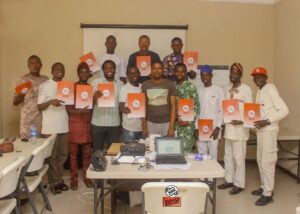We must turn our challenges to Advantage. – Otunba Abayomi Odunowo
Nigeria, like many developing countries, is facing a significant challenge of providing employment opportunities for its excess young workforce. The country’s population has been growing at a rapid pace, resulting in a large number of young people entering the job market every year. However, the economy has not been able to keep up with this influx of labor, leading to high rates of unemployment and underemployment among the youth.
In order to address this issue, Nigeria needs to make concerted efforts to provide opportunities abroad for its excess young workforce. The government and other stakeholders should deliberately look for appropriate jobs around the globe and support the youth to be employed and settled in these opportunities. This may require a significant investment of resources, but it is necessary in order to provide a brighter future for the country’s youth and to alleviate the burden on the national economy.
One way that Nigeria could approach this issue is by taking a page from the playbook of educational loan programs. Just as the government provides educational loans to students who cannot afford to pay for their education, they could also provide support for young people to seek employment opportunities abroad. This could take the form of financial assistance for job search and relocation expenses, as well as support for training and skill development for jobs that are in high demand in other countries.
Of course, such a program would not come without its challenges. The issue of how to recoup the investment in these young people once they are employed abroad is a significant concern. However, this can be addressed by implementing a well-thought-out strategy for repayment. For example, the government could partner with a reputable agency that specializes in global employment placement and have a clear, afraid-proof plan for repayment as the youth generate income abroad. This way, the initial investment in the youth’s employment abroad can be recouped, allowing the program to be sustainable in the long run.
Moreover, placing a focus on providing opportunities abroad for the excess young workforce could also have significant benefits for the country as a whole. The remittances from these young people working abroad could provide a much-needed influx of foreign exchange, helping to stabilize the national economy. Additionally, the experience and skills that these young people gain while working abroad could also be brought back to Nigeria, contributing to the country’s overall development and capacity building.
In addition to the economic benefits, providing opportunities abroad for the excess young workforce could also have positive social implications. By supporting the youth to seek employment opportunities abroad, the government could help to alleviate the frustration and hopelessness that many of them face due to the lack of job opportunities at home. This could lead to a more contented and productive young population, who are more likely to contribute positively to the development of the country.
The increase in the number of graduates from Nigerian universities and polytechnics over the years has been quite significant. In 1992/93, the total number of graduates was 210, 421, and this number steadily increased to 218, 244 by the following year and continued to rise to 236,261 and 253,981 in subsequent years. As of 2022, the figure has risen to 600,000, with universities and polytechnics enrolling almost 2 million students yearly and graduating around 600,000 people.
The rise in the number of graduates can be attributed to various factors, one of which is the decline in the manufacturing sector in Nigeria. This decline has resulted in over half of the 600,000 graduates produced annually continuing to look for jobs. This situation has led to a significant number of unemployed graduates in the country, which has become a growing concern.
When we look at the global job market, we find that there are millions of job vacancies available in various countries. For instance, the United States had 2, 885,050 job vacancies in 2021, followed by Russia, France, the United Kingdom, Germany, Brazil, Italy, Netherlands, India, Canada, Poland, Australia, and Austria. In total, among these thirteen countries, there are approximately 8 million job vacancies.
This presents an opportunity for Nigeria to address its unemployment issue by encouraging a portion of its graduates to seek employment abroad. By enlisting at least 600,000 graduates for jobs in other countries, Nigeria can address its unemployment problem to a certain extent. However, this approach also raises some concerns, as it may lead to a brain drain, with many skilled individuals opting to work overseas rather than in Nigeria.
To ensure that only deserving candidates are able to take advantage of this opportunity, strict criteria based on honesty, dedication, and integrity during their time in school need to be put in place. Only those who meet these criteria should be considered for opportunities abroad. This will also help inculcate the right attitude and work ethic among the graduates, making them more employable both within and outside Nigeria.
To effectively execute this plan, there needs to be a strong synergy between the federal and state governments, as well as universities and private institutions. The knowledge and skills being acquired by the graduates must align with the job opportunities available, ensuring that they are well-prepared for the global job market.
Furthermore, as part of the agreement for graduates to work abroad, they should be required to save 10% of their monthly salaries in Nigeria. This will not only provide a steady flow of foreign currency for the country but also encourage graduates to contribute to the development of their home country.
In conclusion, the increase in the number of graduates in Nigeria presents both challenges and opportunities. By leveraging the global job market, Nigeria can work towards reducing its unemployment rate while also ensuring that its graduates are equipped with the right skills and attitudes to succeed in the workforce. With strategic planning and collaboration, Nigeria will turn its perceived problem of unemployment into an opportunity for economic growth and development.
Otunba Abdulfalil Abayomi ODUNOWO
National Chairman AATSG.
8th January, 2024.









